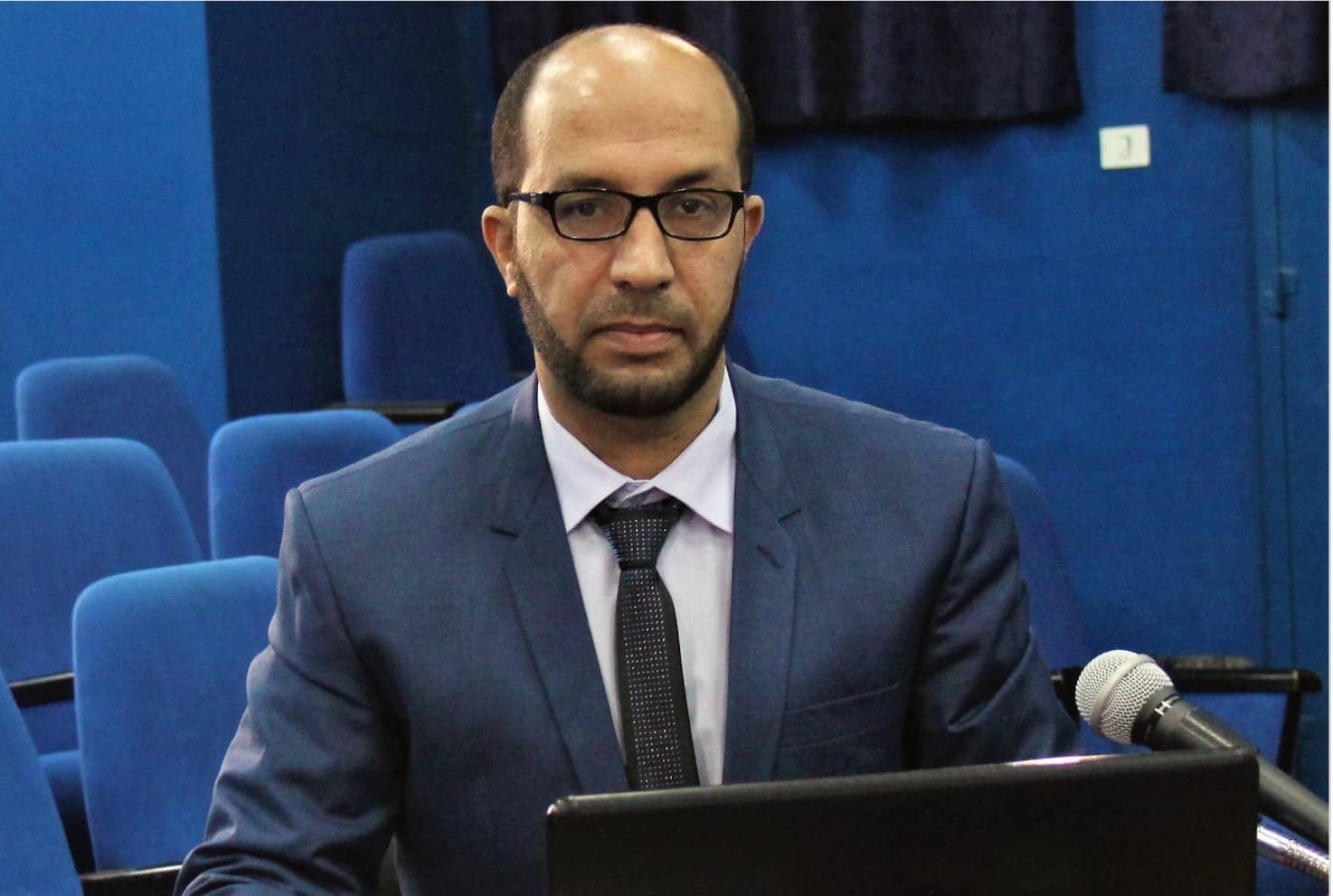Denis Korkodinov – Interview with Rami Abu Zubaida
After the creation of the state of Israel, the White House administration came to the conclusion that the American presence in the region was problematic if, first of all, the Arab-Israeli conflict was not resolved. Subsequently, the conclusion the need to normalize relations between Arabs and Jews turned into the main postulate of US foreign policy. For this reason, Washington has repeatedly made efforts to mediate between Israel and Palestine. However, each time the negotiation process between the parties was unsuccessful. Even the so-called “Deal of the Century” announced by Donald Trump is not able to solve the problem, since Palestinians doe not agree with any point of this documents and they intend to boycott it. So the Arab-Israeli conflict seems artificially trapped.
Specifically for World Geostrategic Insights, we talked about this with the Palestinian military and security expert Rami Abu Zubaida.

1. On September 19, 2019, the head of the Palestinian Foreign Ministry, Riyad al-Maliki, officially announced that Ramallah respects the election results in Israel and is ready to begin the negotiation process “with those who can form a government.” Does this statement indicate that the parties to the Arab-Israeli conflict intend to ease the tension between the two countries, despite the fact that more recently, Israeli Prime Minister Benjamin Netanyahu spoke about the upcoming military operation in the Gaza Strip? On what conditions is Ramallah ready to resume dialogue with the leader of the new coalition government in Israel?
– The statement of the Minister of Foreign Affairs of Palestine Riyadh al-Maliki does not express the opinion of all Palestinians, and also contradicts not only the Palestinian intra-national consensus, but also the position of the Palestinian Authority, decisions of the National Council and recent decisions of the Central Council to terminate cooperation with Israel.
Over the past decades, negotiations have not led to clear achievements in the Palestinian cause and have not contributed to the well-being of the Palestinian people. Is it logical that the Palestinian Authority still relies on negotiations to enable Israel to completely confiscate the West Bank ?!
I believe that this conversation, at this time, with the announcement of the Palestinian side’s readiness to return to the negotiating table after the US conspiracy with Israel over Jerusalem and the American administration recognizing Jerusalem as the capital of Israel, is a serious mistake and a departure from the position of national consensus.
The PA’s position to return to negotiations without clear conditions is a free concession to national constants and a return to the illusions of a political settlement through useless negotiations, which Israel used as a cover for a policy of colonial settlement. PA leadership must side with the Palestinian people who are committed to their ideals, take the lead in implementing the reconciliation agreement, and lift sanctions on the Gaza Strip.
2. Speaking to reporters on September 1, 2019, the official representative of the Palestinian leadership Abu Rudeyna confirmed the Ramallah’s traditional requirement for Israel to remove all Jewish settlements built on the West Bank. How likely is the realization of such a requirement: will Tel Aviv agree to abandon its project to create Jewish settlements in the West Bank? If Israel rejects the claim, what actions can Palestine take (I mean actions similar to what Israel took in Wadi al-Humus when the houses of the Palestinian community were demolished)? Will the implementation of this requirement lead to a new wave of the Arab-Israeli conflict?
– Israeli settlements in the Palestinian territories are considered a violation of international law and impede efforts to resolve the conflict. They were created on Palestinian land, which should become part of the desired Palestinian state. The creation and further expansion of settlements in violation of international law is the main driving force behind the instability of the situation. Security and humanitarian assistance in the Palestinian territories, which could provoke a new popular uprising.
It is clear that Israel will not succumb to the requirements of the Palestinian Authority because it lacks international support. These requirements are based on a unified Palestinian position. Settlement plans and the imposition of local negotiations in the West Bank undermine the dream of a Palestinian state, where Israel used the settlement process that began more than a quarter century ago to prevent the creation of a Palestinian state, which was to be the fruit of this process.
What is happening in the Palestinian arena is an attempt to impose a plan in accordance with the decision of the United States. Obviously, the current stage is the phase of the elimination of the Palestinian issue and the use by several Arab countries of the international and regional situation in order to normalize relations with Israel. An American-Israeli settlement has been imposed, which has been agreed for some time, but recently it has clearly manifested itself in the exchange of roles between Israel and the United States.
What action Palestine takes depends on the policies and procedures of Tel Aviv and the White House. This limits the scope for Palestinian action.
Nevertheless, there are still some maps by which the PA can clash with Israel’s plans and prevent it, but it depends on the willingness of the Palestinian leadership to take bold and unconventional steps in the face of Israeli attacks on the rights of the Palestinian people.
The first of these steps is that we, the Palestinians, must reunite the components of the people in all geographical contexts within the country and abroad. The Palestinian people must strengthen their voice by demanding respect for their rights in order to protect our future.
It also requires the creation of an internal Palestinian front, especially since the people need a united leadership that will take care of its national interests.
Among other things, there is a need to create international alliances based on the attitude to the Palestinian problem, taking advantage of what is happening in the region, and weakening US control at the global level, the emergence of a central force in the world and using the central role of Russia in supporting the rights of the Palestinian people.
Of course, such a statement of the issue will be rejected by the Israeli leadership, which is likely to lead to an escalation of the conflict. But we are ready to fight for our rights, even if the whole world is against us.
3. According to the economic part of the so-called “Deal of the Century” presented by Jared Kushner in Bahrain during the international conference “Peace for Prosperity”, Washington intends to provide $ 50 billion in order to resolve the Arab-Israeli crisis. It is estimated that a significant proportion of this amount should be spent on restoring the Palestinian economy. Why are the Palestinians against this plan? What negative consequences for the Palestine may contain the “Deal of the Century”? What is the role of Egypt in resolving the conflict between Israel and Palestine?
– Palestinians are opposed to this plan, because the United States seeks to turn the Palestinian people into a group of people who think only about ensuring their basic economic needs, and not about the right to self-determination, to get rid of Israeli pressure, return refugees and pay Arab and international funds to the Palestinian people in form of investment projects, infrastructure and employment opportunities. Their legal rights will be forgotten.
The plan is also considered a Palestinian trade agreement under various names in light of the continuation of US policy to promote Israeli pressure on the Palestinian people.
One of the negative consequences of the “Deal of the Century”, which began to be implemented even before the announcement of its conditions, officially beginning with the declaration of Jerusalem as the eternal and unified capital of Israel, as well as the abolition of the legal settlement of the confrontation in the West Bank, the legitimization of Israeli sovereignty in the Golan.
Any economic plan or agreement without a political settlement, which includes the creation of a Palestinian state with a capital in Jerusalem, recognition of the refugees’ right to return and compensation, will not be accepted by the Palestinian people.
The Palestinian question is one of the most important components of Egyptian foreign and national security policies. Therefore, the Palestinian people are counting on the role of Egypt, which will block more than 2 million Palestinians in the Gaza Strip. Egypt has assumed great responsibility in the framework of the Arab-Israeli conflict at various stages of its development.
In addition, Cairo played an important historical role in preserving Palestinian nationalism, and therefore there are long-standing and strong relations between our countries. No one can doubt the importance and role of Egypt in maintaining the national dimension of the Palestinian cause. Therefore, Egypt is called upon to play a more active role in completing the reconciliation process between the Fatah and Hamas movements and to seek the immediate implementation of the Cairo Agreement of 2011, which was adopted by both the Palestinian Authority and Hamas.
Only Egypt has a real opportunity to push the Palestinian forces to turn the page of the Palestinian gap, unite the Palestinians within a single political and diplomatic system, as well as return the Palestinian dossier to the list of priorities and can withstand the challenges Israel poses to the Palestinian people.
Image Source: Leeuwarder Studentenkrant







